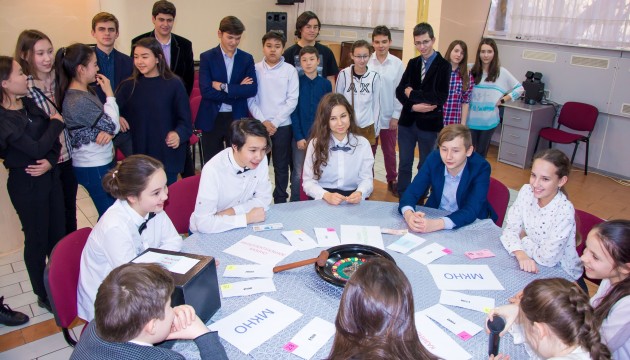One of the primary educational objectives of the International College of Continuing Education, as an international institution, is to offer graduates the opportunity to pursue further education at leading universities in Kazakhstan and abroad, where instruction is conducted in English. How do we solve this problem?
— Of course, the key figure is the teacher. The college managed to unite a team of like-minded individuals who are fluent in English and possess effective teaching methods, skillfully utilizing modern educational technologies in the classroom.
All teachers have completed international certification and language training in the UK, and are systematically engaged in self-education to improve their language level.
— An important role is played by well-chosen, leveled educational and methodological complexes that correspond to the age characteristics of students and motivate them to study the language.
— The college curriculum provides for a reasonably significant increase in weekly teaching hours for studying English compared to the standard. Dividing classes into level groups allows students to progress through the program at their own pace, and the teacher to motivate students and achieve positive results.
— Organizing annual language training for students in grades 5-10 in the best partner language centers in the UK (Portsmouth, Oxford, Cambridge, Canterbury, Brighton) allows students not only to improve their language skills in international groups, but also to get acquainted with the history and culture of the country.
— The traditional "English Club" for students in grades 2-4, 5-10 allows students to express themselves not only in free communication and practice spoken English, but also to participate in theatrical performances, thematic quizzes, meetings, projects, and get acquainted with the national traditions of English-speaking countries.

The working curriculum of General Secondary Education (grades 10-11) is developed based on the Model Curriculum of the social and humanitarian direction, approved by the Ministry of Education of the Republic of Kazakhstan.
The invariant component of the curriculum for grades 10-11 comprises academic subjects, with a weekly and annual academic load corresponding to the social and humanitarian direction. The priorities are mainly given to subjects of the humanitarian cycle, including Kazakh language and literature, Russian language and literature, English language, and history.
The variable component of the curriculum of general secondary education contains a continuation of the study of the course "Global Competencies", started in grades 5-9, and contributes to the formation and development of students' critical thinking, research, and design skills, communication, solving, and analyzing problems of global importance.
To meet the students' needs for a more in-depth study of natural science and mathematics subjects, the curriculum of additional education for this category of students provides for an inevitable increase in the number of weekly academic hours in algebra and the principles of analysis, geometry, as well as advanced special courses in physics, chemistry, and biology. In addition, as part of additional education, students in grades 10-11 are offered the programs "Modern Economics and Marketing" and "Solving Physics Problems in English"
When drawing up the working curriculum of general secondary education, the implementation of the order of the Minister of Education of the Republic of Kazakhstan on determining the start and end dates of the academic year, holidays, as well as the timing of the final certification of students in grades 9 and 11, was indeed observed.
Considering the additional education component of the working curriculum, there is a slight increase in the total number of weekly academic hours by grade. Elimination of student overload is achieved through the approved college operating mode and homework schedule.
The health-preserving function of the working curriculum is ensured through the implementation of the sanitary rules "Sanitary and Epidemiological Requirements for Educational Facilities", approved by Order of the Minister of Health of the Republic of Kazakhstan No. 76 dated May 8, 2021.

























